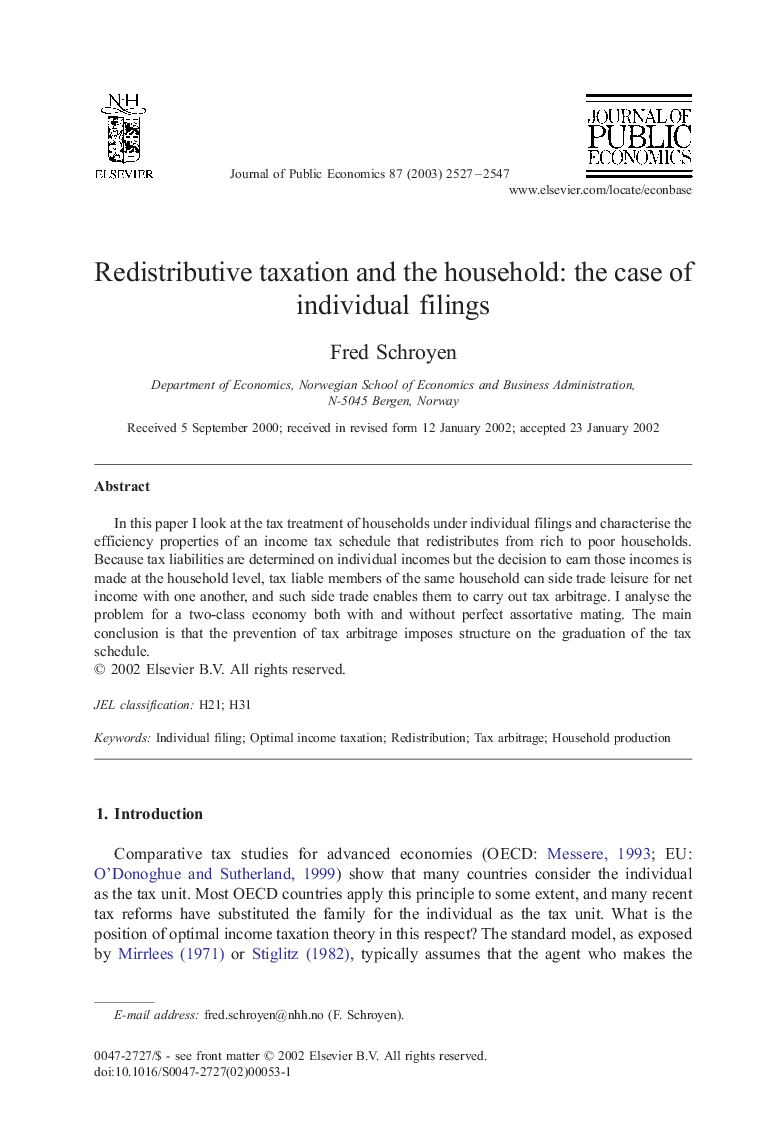| Article ID | Journal | Published Year | Pages | File Type |
|---|---|---|---|---|
| 968930 | Journal of Public Economics | 2003 | 21 Pages |
Abstract
In this paper I look at the tax treatment of households under individual filings and characterise the efficiency properties of an income tax schedule that redistributes from rich to poor households. Because tax liabilities are determined on individual incomes but the decision to earn those incomes is made at the household level, tax liable members of the same household can side trade leisure for net income with one another, and such side trade enables them to carry out tax arbitrage. I analyse the problem for a two-class economy both with and without perfect assortative mating. The main conclusion is that the prevention of tax arbitrage imposes structure on the graduation of the tax schedule.
Related Topics
Social Sciences and Humanities
Economics, Econometrics and Finance
Economics and Econometrics
Authors
Fred Schroyen,
